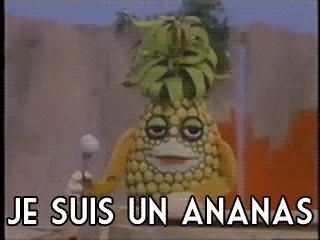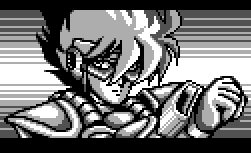Washing Machines are girls for some reason… sme as dryers
Isn’t machine female? La machine
“La machine à laver,” or “la laveuse”
But not all machines are X machine, some have specific names that could be either gender.
In France, “lave-linge” and “machine à laver” are equally common. The first is masculine and the second feminine. For dryers, “sèche-linge” is definitely most common, and is masculine. Of course this might be very different in Quebec or other french-speaking regions.
Just to confirm for people who don’t know it’s not the actual physical object that has a gender but the word
It can be both ! You can either call it “un lave-linge” or “une machine à laver”.
Yeah, it would be nice if people stopped assuming it gender.
Me who don’t want to assume someone’s gender: starts speaking Chinese (because “他” is a gender neutral pronoun)
More reasons why Latin based language sucks. We should make Chinese the lingua franca of the world… 😉
The Chinese decided to introduce gendered pronouns to make their language more European so… Uh… 他她它 moment.
German also has a gender neutral pronoun (es) 👍
Those tones though
Reminds me of the time when I forgot if the Latin word for bedroom is -a or -um… (it was cubiculum btw, apparently all rooms are gender neutral)
If you’re not sure just guess femminine, that seema to be the case more often than not
That’s common in most Latin derived languages
Un baguette, une baguette, le la.
Il y a un truc qui peut vous servir dans cette situation là.
Dites juste deux baguettes.
C’est un peu plus cher mais en tout cas, il vaut la peine et vous aurez deux baguettes à la fin.
A baguette, a baguette, the a.
There is a trick that can help you in this situation.
Just say two baguettes.
It is a little more expensive but in any case, it is worth it and you will have two baguettes at the end.
I don’t think the translator worked that well here, but I think it makes it funner lmao
Hey that`s my actual french!
Take a look at the first sentence in english.
My native language is gendered but I still don’t always know how I’m supposed to talk about male members of a species with a feminine name or vice versa.
“A person by the name of Mary was…” “Person” is masculine. Mary can hear me and I don’t want to offend her. “Was” has a masculine and a feminine form.
I think the masculine form of “was” would be technically correct, but then do I have to use masculine pronouns? “A person by the name of Mary was there and he…” The real answer is to rephrase what I said to avoid awkward grammar.
i thought gendered languages had two genders for words like “person” so you could make the swap when the gender is known
e.g. un person / une personne
I deliberately picked an example where there isn’t (or I don’t know) a feminine version. Most words that I can think of for various categories of people do have two genders, although in many cases the feminine version sounds awkward to me, a little like the “trix” suffix does to English speakers.
(Also, the male default sometimes makes using the feminine version of a word sound like you’re deliberately emphasizing that you’re referring specifically to women as opposed to simply talking about someone who happens to be a woman.)
in my Spanish (HS) class if I don’t know I just guess based off of the vibes
I’ve guessed correctly more often than not
I don’t know how German compares to French or Spanish, but in German things can be masculine, feminine, or neutral. What I do—which is partially as a protest, and partially out of laziness—is to assume every non-person noun is neutral.
It works surprisingly well in IT where basically all nouns are neutral, but I probably sound like Kevin from The Office in every other context.
Yeah as an English speaker using neuter seems very natural. Modern English loan words such as from IT are often neuter for that reason.
However in general, words are statistically most likely to be masculine and least likely to be neuter. So if the word ending isn’t obviously feminine and it’s not a category such as IT that has a common gender you may be better off guessing masculine.
This is arguably subjective, but I think making masculine and feminine words neuter is the only way to counteract the inherent sexism of gendered nouns. If you make everything masculine, you’re still tacitly supporting the previous categorization of masculine nouns as correct, and vice versa for making every noun feminine.
My understanding was that it’s not seen as a male or female like it would be in English. Like der Tisch, they aren’t thinking of the table being manly, it’s just the way it’s said. Also neuter is seen more like a child gender than nonbinary. I have heard nonbinary people find neuter as being offensive because it’s infantilizing them. At least that’s how it was explained to me.
Would love to know more if anyone has any experience with that. I could be wrong as I am still learning and don’t know about gender theory in German. Are there gender politics for objects in German?
I don’t remember most of the grammatically correct genders, but when I was trying to learn them I had the distinct impression that stereo-typically manly nouns were masculine and stereo-typically womanly things were feminine.
I have heard nonbinary people find neuter as being offensive because it’s infantilizing them. At least that’s how it was explained to me.
I haven’t heard anything about that but that’s really interesting. Do you know how they prefer to be addressed?
Yes they do match up where if you are talking about a female animal or person it’s a feminine word etc. For inanimate objects I’ve been told they aren’t necessarily giving or thinking of them as having a gender though, not like it would be in English.
There seems to be no standard way to address someone nonbinary, it’s even worse than in English. Best I know is to ask. Until then most simply skip the pronoun and use their name instead, or Sie. Since Sie is respectful and is already used for people of any gender when used formally.
The nonbinary category itself is often called “divers”. Nouns that reference gender can be combined by adding an asterisk in the middle. “Lehrer*innen”. As a warning though some conservative and older people can get upset about the asterisk.
Do you know what level German you are at? My older relatives spoke German but passed away when I was young. I always regretted not learning it and being monolingual. So in my 30’s I decided I was just going to learn it even if it took years or I never fully got genders right. Now it’s been 15 months learning daily and am at the B1 level. So not an expert just intermediate with more to learn.
Je suis enchanté
Où est le bibliothèque?
Voilà mon passport
Ah, Gérard Depardieu
Baguette, hon hon hon
Baguette, hon hon hon (hon hon) hon hon hon!
I’m a simple man, I see Flight of the Conchords, I upvote.
I don’t know a single lick of French but somehow my brain knew this is the intro to Foux Da Fafa, a song I haven’t listened to in over a decade
And if yo get it wrong you’ll be forever banned from blahaj.
Can we not bring these stupid, lazy jokes into Lemmy please?
mistakes = ok
purposefully using the wrong pronoun = not okis it that difficult? I don’t understand why you’re so upset about a gender diverse instance enforcing their rules 🤷♀️
Fake. If that was me, those baguettes would be gone within 0.3 nanoseconds.

SEND THAT CUNT BACK TO HELL FROM WHENCE IT CAME
Telefrancais haunted my nightmares so badly as a child
Doesn’t it depend on if it’s a top load or bottom load model?
I think power bottom loaders are a thing now
These days with everything being LGBTQIAOMGWTFBBQ++++++++, no, not even remotely.
My washing machine is only A+++
Very very very asexual?
*Aromantic
Your washing machine still tosses (clothing) salad on a regular basis.
The word for potato is my favorite. It’s so fancy and English just calls it a potato.

My highschool french class always loved the word for “squirrel”, “pomegranate”, and of course the ever popular “seal in the shower” combo for extra fun.
to be fair, that’s a modern take. in antiquity it was so ignoble it was given the generic name for a fruit/vegetable.
a modern version might be more akin to “dirt thing”
Potatoes weren’t introduced to europeans in the antiquity
I meant it colloquially - like a long time ago - but fair point. More accurately, it was introduced about 100-150 years before there was a linguistic trend for fruit to be called fruit and not apples.










